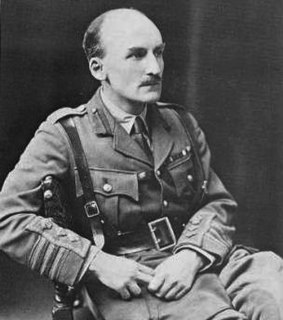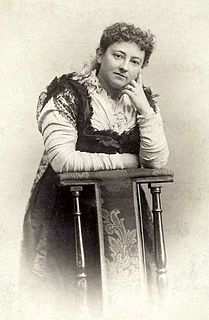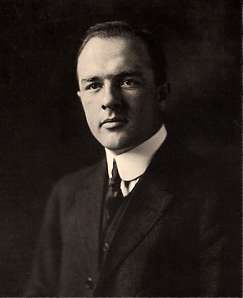A Quote by Johann Wolfgang von Goethe
What men usually say of misfortunes, that they never come alone, may with equal truth be said of good fortune; nay, of other circumstances which gather round us in a harmonious way, whether it arise from a kind of fatality, or that man has the power of attracting to himself things that are mutually related.
Related Quotes
Every man is of importance to himself, and, therefore, in his own opinion, to others; and, supposing the world already acquainted with his pleasures and his pains, is perhaps the first to publish injuries or misfortunes which had never been known unless related by himself, and at which those that hear them will only laugh, for no man sympathises with the sorrows of vanity.
[God desires] not that He may say to them, "Look how mighty I am, and go down upon your knees and worship," for power alone was never yet worthy of prayer; but that He may say thus: "Look, my children, you will never be strong but with my strength. I have no other to give you. And that you can get only by trusting in me. I can not give it you any other way. There is no other way."
Power! Did you ever hear of men being asked whether other souls should have power or not? It is born in them. You may dam up the fountain of water, and make it a stagnant marsh, or you may let it run free and do its work; but you cannot say whether it shall be there; it is there. And it will act, if not openly for good, then covertly for evil; but it will act.
Men in general are too material and do not make enough human contacts. If we search for the fundamentals which actually motivate us we will find that they come under four headings: love, money, adventure and religion. It is to some of them that we always owe that big urge which pushes us onward. Men who crush these impulses and settle down to everyday routine are bound to sink into mediocrity. No man is a complete unit of himself; he needs the contact, the stimulus and the driving power which is generated by his contact with other men, their ideas, and constantly changing scenes.
The Great Man's sincerity is of the kind he cannot speak of, is not conscious of: nay, I suppose, he is conscious rather of insincerity; for what man can walk accurately by the law of truth for one day? No, the Great Man does not boast himself sincere, far from that; perhaps does not ask himself if he is so: I would say rather, his sincerity does not depend on himself; he cannot help being sincere!
We carry about us the burden of what thousands of people have said and the memories of all our misfortunes. To abandon all that is to be alone, and the mind that is alone is not only innocent but young -- not in time or age, but young, innocent, alive at whatever age -- and only such a mind can see that which is truth and that which is not measurable by words.
Ought a man to be confident that he deserves his good fortune, and think much of himself when he has overcome a nation, or city, or empire; or does fortune give this as an example to the victor also of the uncertainty of human affairs, which never continue in one stay? For what time can there be for us mortals to feel confident, when our victories over others especially compel us to dread fortune, and while we are exulting, the reflection that the fatal day comes now to one, now to another, in regular succession, dashes our joy.
Let us not be unmindful that liberty is power, that the nation blessed with the largest portion of liberty must in proportion to its numbers be the most powerful nation upon earth. Our Constitution professedly rests upon the good sense and attachment of the people. This basis, weak as it may appear, has not yet been found to fail. Always vote for a principle, though you vote alone, and you may cherish the sweet reflection that your vote is never lost. America, in the assembly of nations, has uniformly spoken among them the language of equal liberty, equal justice, and equal rights.
The sovereign good of man is a mind that subjects all things to itself and is itself subject to nothing; such a man's pleasures are modest and reserved, and it may be a question whether he goes to heaven, or heaven comes to him; for a good man is influenced by God Himself, and has a kind of divinity within him.






































